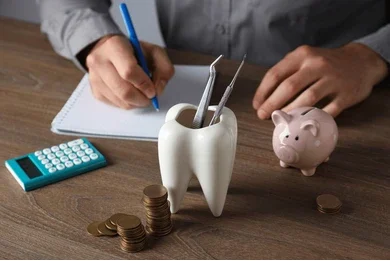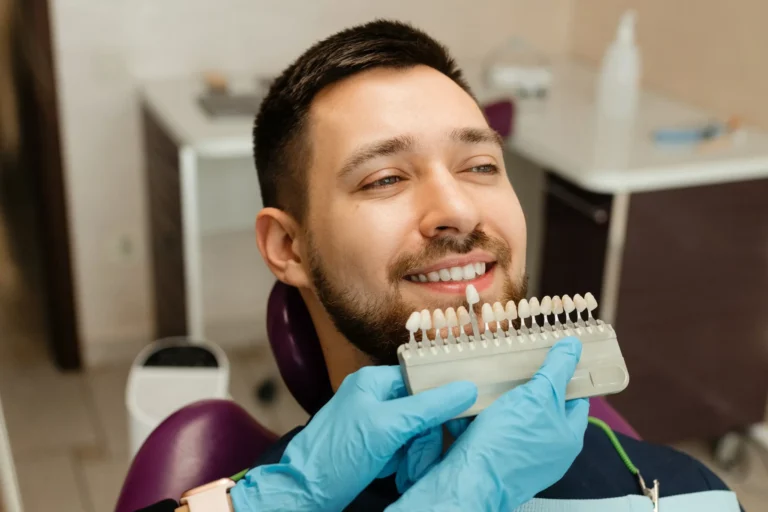Got Dental Implants? Here’s the Truth About ‘Just a Few Smokes’ After Surgery
Can you smoke after getting dental implants? And if so, how much? We break down the real risks, timelines, and safer alternatives so you can protect your investment while still living your life.
Smoking and Dental Implants: The Risk You Shouldn’t Ignore
So, you’ve just had dental implant surgery, and now you’re wondering, Can I still smoke? Maybe you’ve heard that smoking can lead to implant failure, but you’re thinking, What if I only smoke a little?
Here’s the truth: Even light smoking can interfere with the success of your dental implants. From slower healing to an increased risk of infection and implant failure, nicotine and smoking-related chemicals compromise your oral health and can prevent proper integration of the implant with your jawbone.
The good news? There are ways to reduce the risks and protect your investment—without completely giving up your lifestyle. Let’s break it all down.
💡 Curious about long-term implant care? Check out our Complete Guide to Dental Implant Maintenance to keep your implants healthy for years to come!
How Smoking Affects Dental Implant Success
🚨 Reduced Blood Flow & Slower Healing
- Nicotine restricts blood flow to the implant site, reducing the body’s ability to heal.
- This slows bone integration (osseointegration), which is crucial for implant stability.
🚨 Increased Risk of Infection & Gum Disease
- Smoking weakens the immune system, making infections around the implant more likely.
- Gum disease is a leading cause of implant failure—and smokers have a higher risk of developing it.
🚨 Higher Chance of Implant Failure
- Studies show that smokers have a significantly higher implant failure rate than non-smokers.
- The risk increases even with light smoking—so cutting back isn’t enough.
💡 Want to avoid implant failure? Learn more in our Guide to Recognizing Implant Problems.
How Much Smoking is ‘Too Much’ After Dental Implants?
Even if you only smoke a little, it still increases your risk of implant failure. But some periods are more critical than others. Here’s what you need to know:
🚫 The First 72 Hours: Absolutely No Smoking
- This is when blood clots form and initial healing begins. Smoking during this time can lead to implant failure immediately.
⚠️ The First 2 Weeks: High-Risk Period
- This is when gum tissue heals and early osseointegration begins. Even light smoking can increase inflammation and slow healing.
⚠️ The First 3-6 Months: Osseointegration Phase
- Your implant is fusing with your bone. Nicotine can interfere with this process, weakening the bond and leading to implant instability.
💡 If you’re considering implants but smoke, check out our Best Dentists for Dental Implants to find an expert who can guide you through the process.
How to Minimize the Risks if You Still Smoke
While quitting is the best option, here’s what you can do to reduce the damage if you still choose to smoke:
✔️ Use nicotine patches or gum instead of cigarettes – These reduce exposure to smoke-related chemicals.
✔️ Rinse with an alcohol-free mouthwash after smoking to clear harmful toxins.
✔️ Maintain strict oral hygiene – Brush and floss around the implant site daily.
✔️ Increase water intake to flush out toxins.
✔️ Schedule extra dental cleanings – Regular dental checkups help catch problems early.
💡 Looking for more tooth replacement options? Read our Denture vs. Implant Pricing Guide for a full breakdown.
Final Thoughts: Protect Your Investment
If you’re serious about keeping your dental implants healthy, avoiding smoking is one of the most important things you can do. Even light smoking can lead to implant failure, but with the right care and precautions, you can give your implants the best chance of lasting a lifetime.
💡 Ready to restore your smile? Book a consultation with a trusted dental professional today!
FAQs About Smoking After Dental Implants
Can I smoke after getting dental implants?
It’s strongly discouraged. Smoking—even light smoking—increases the risk of implant failure, infections, and poor healing.
How soon after dental implant surgery can I smoke?
You should avoid smoking for at least two weeks, but ideally 3-6 months to allow the implant to integrate properly.
What happens if I smoke too soon after getting implants?
Smoking too soon can lead to infection, poor healing, and implant failure, often requiring implant removal and costly corrective procedures.
Does vaping or e-cigarettes affect dental implants?
Yes! Nicotine, whether from traditional cigarettes or vapes, restricts blood flow and can cause implant failure.
Are there safer alternatives to smoking after dental implants?
Yes! Consider using nicotine patches, gum, or other smoking cessation aids to minimize the impact on your implant healing.
Does smoking affect bone grafting for implants?
Yes. Nicotine slows bone growth and healing, making bone grafting less successful and increasing the risk of implant failure.
Will quitting smoking improve my chances of implant success?
Absolutely! The sooner you quit, the better your chances of a successful, long-lasting implant.







